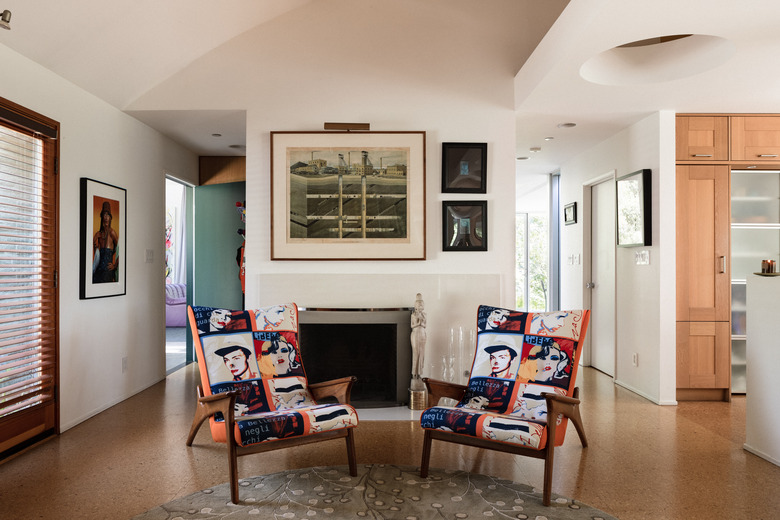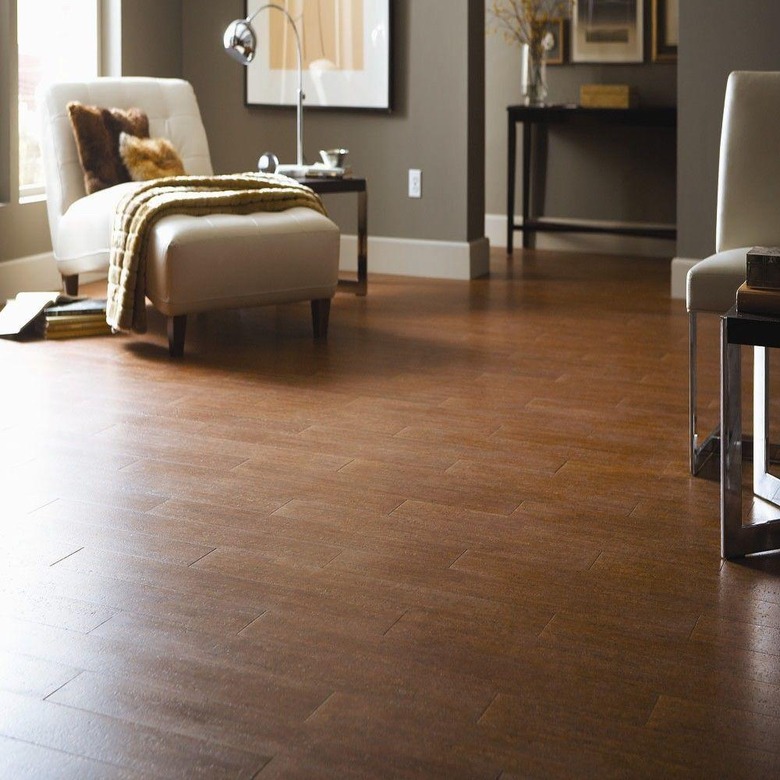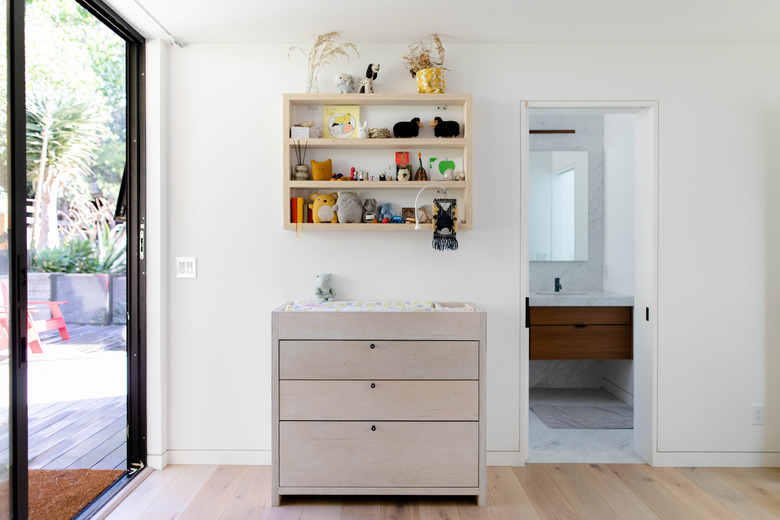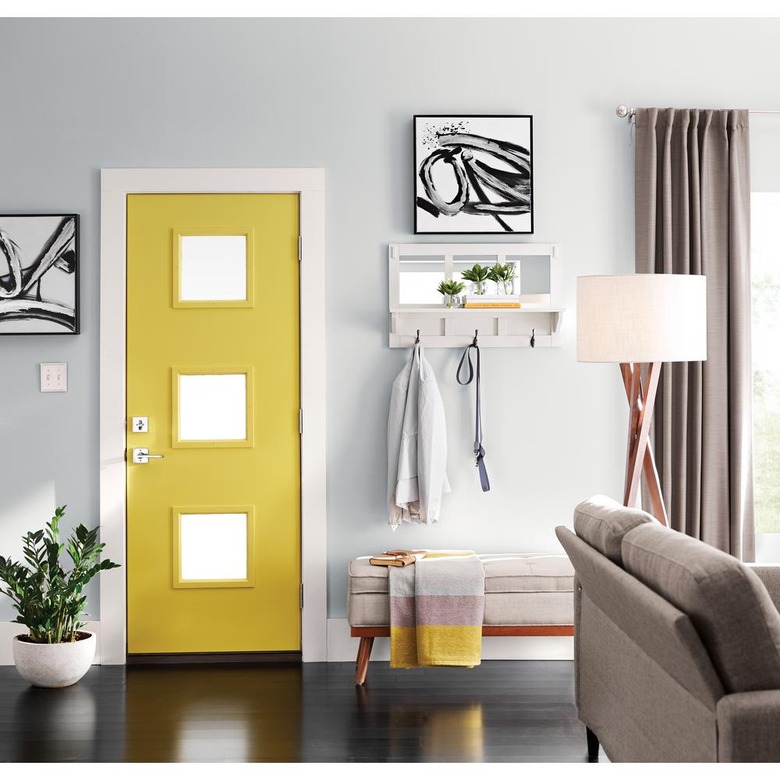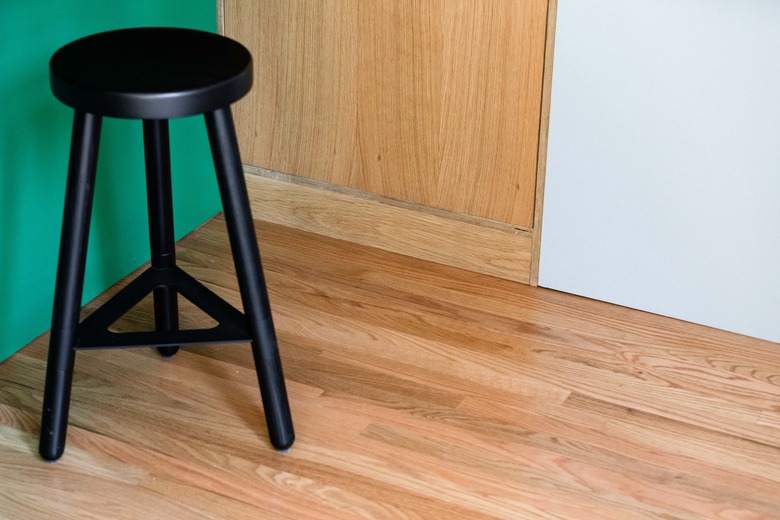Cork Vs. Bamboo Flooring
- What Is Cork Flooring?
- Advantages of Cork Flooring
- Disadvantages of Cork Flooring
- Cork Flooring Pricing and Brands
- What Is Bamboo Flooring?
- Advantages of Bamboo Flooring
- Disadvantages of Bamboo Flooring
- Bamboo Flooring Pricing and Brands
- Installation Considerations for Cork and Bamboo Flooring
- Cleaning Considerations for Cork and Bamboo Flooring
- Cork vs. Bamboo Flooring
Adding new flooring to a room is often a costly endeavor, which is why it's important to choose carefully when deciding on a flooring material to use. If you like the look of hardwood flooring but aren't sure if it's right for you, perhaps you should consider some comparable alternatives like cork flooring or bamboo flooring. Getting to know the facts about cork and bamboo flooring can help you decide which flooring type is best suited to your needs and budget.
What Is Cork Flooring?
What Is Cork Flooring?
Cork is a natural material that is harvested from the bark of the cork oak tree, which is native to the Mediterranean. The process for harvesting the bark from the cork oak tree is done manually and is carefully regulated to protect the inner layer of bark from each tree so it can continue growing and producing new bark.
To create cork flooring, manufacturers also utilize the leftovers from bottle stopper production. These are then ground into a grain, pressed together and heated. This harvesting process makes cork flooring a solid contender for eco-friendly flooring options.
Advantages of Cork Flooring
Advantages of Cork Flooring
In addition to the fact that it comes from a renewable resource, cork flooring is one of the most comfortable flooring options available because it is naturally flexible and soft underfoot. Cork flooring gives you a lot more spring in your step than its hardwood counterpart, and that same flexibility offers quality insulation for both sound and temperatures.
Sound absorption occurs more naturally with cork flooring than it does with other comparable flooring products. The natural insulation also helps maintain the floor at a comfortable and consistent room temperature in both hotter and colder months.
Cork flooring is an ideal choice for people who suffer from allergies because it doesn't attract dirt and is naturally resistant to mildew and insects. Since its honeycomb structure makes it shock absorbent, cork flooring can take more of a beating than other types of flooring and works particularly well in rooms with heavy foot traffic.
Disadvantages of Cork Flooring
Disadvantages of Cork Flooring
Much like its solid hardwood counterpart, cork flooring is sensitive to changes in humidity and temperature levels, which can cause the cork to warp and swell. Cork can also fade over time, particularly if installed in an area that receives direct exposure to sunlight on a regular basis. Some people try to address this concern by laying down large area rugs to protect the floor, but that can lead to unsightly outlines left on the floor around the rug. Instead, consider investing in quality black-out blinds or curtains.
Cork flooring is susceptible to scratches, dents and scuff marks. You'll need to use caution with high heels, pet nails, heavy furniture and even dirt, which can damage cork flooring. Also, cork is naturally moisture resistant, but it isn't waterproof. It does tend to quickly absorb liquids, so cork may not be the best choice for kitchens or bathrooms where spills and water buildup are more likely to occur.
Cork Flooring Pricing and Brands
Cork Flooring Pricing and Brands
As with any other home improvement project, cost is usually a significant consideration. No matter how much you might love cork flooring, it won't matter if the cost is beyond your budget. According to HomeAdvisor, cork costs between $3 and $12 per square foot.
The price of cork flooring varies depending on colors and patterns. The cheapest cork flooring at the $3 per-square-foot range typically has the same color and look as a wine stopper. As the brightness of the colors increases, so does the price.
Brands for cork flooring products are sometimes as varied as the products themselves — from Jelinek Cork Group, which was founded in 1855 and is the oldest existing cork flooring supplier in the world, to APC Cork, which is one of the biggest suppliers in North America and is known for excellent customer service, each brand of cork flooring offers something unique to consumers.
USFloors, for example, is the only cork flooring supplier with manufacturing plants that are local to the United States. Their products carry a lifetime warranty on residential applications. Decide what you look for most in a brand and then choose the one most compatible with your needs.
What Is Bamboo Flooring?
What Is Bamboo Flooring?
Like cork, bamboo is a renewable resource. Rather than a wood, bamboo is a thick grass harvested from the bamboo plant. Despite being heralded as "the fastest growing plant on earth," Floor Critics warns consumers to carefully check labels to ensure your bamboo flooring material has been inspected properly and collected responsibly.
Harvesting bamboo during the rainy season makes it susceptible to cracking. Harvesting it during the dry season, on the other hand, makes it vulnerable to fungi growth.
Though bamboo flooring is not new, recent improvements and advancements in the way it is manufactured have given it new life in the flooring industry. The introduction of strand-woven bamboo marks the biggest change. Strand-woven bamboo is extremely dense and can be produced to mimic nearly any style of wood flooring for a fraction of the price.
Advantages of Bamboo Flooring
Advantages of Bamboo Flooring
In addition to its natural beauty and its reputation as a fast-renewing resource, bamboo flooring is usually easier on the wallet than solid hardwood flooring options. Despite being a type of grass, bamboo is a durable flooring material that is harder than oak, easy to clean and can last for decades with the proper care and maintenance. Bamboo flooring is also suitable for people with allergies because it does not attract dust or allergens.
Bamboo makes for a highly versatile floor that can be installed with relative ease over most kinds of subfloors. It also comes in a wide variety of styles and colors, so it is compatible with an array of design ideas. However, keep in mind that to achieve certain darker colors, the bamboo must be treated with heat, which can cause it to be softer and perhaps less durable than other options with lighter, more natural colors.
Disadvantages of Bamboo Flooring
Disadvantages of Bamboo Flooring
Many of the pros and cons of bamboo flooring are like those of cork flooring. Bamboo flooring is just as sensitive to humidity as cork and will also warp or discolor if exposed to changing climates. However, bamboo offers very little water resistance, so it is far more vulnerable and more easily damaged than cork in that regard. For best results, bamboo flooring should not be installed in kitchens or bathrooms where water exposure is a constant threat. Also, despite its hardness, bamboo is prone to scratches.
Some types of bamboo flooring, particularly the cheaper, lower-quality kinds, can contain VOCs and formaldehyde. If released at certain levels, these toxins can lead to health issues for people with sensitive respiratory systems. Many bamboo flooring manufacturers rate their flooring products for VOCs and formaldehyde concentrations so that consumers can make an informed decision about their purchase.
Bamboo Flooring Pricing and Brands
Bamboo Flooring Pricing and Brands
While the exact pricing varies depending on manufacturer, quality level and style, the cost of bamboo flooring typically runs from $2 to $8 per square foot for the material itself. The type and finish of your bamboo flooring will influence the final cost, as will any installation fees you may need to pay, which are comparable to that of installation for traditional wood flooring.
Some bamboo flooring brands, like Cali Bamboo, offer scratch-resistant coatings and a 50-year residential warranty on all their products. Other brands, like Trinity Bamboo, focus on selling bamboo flooring products that have been responsibly sourced and whose quality is tested by independent third parties.
Product pricing, features, styles, warranties, certifications and shipping fees vary by brand. Decide which factors are most important to you and then shop around to find the most compatible brand.
Installation Considerations for Cork and Bamboo Flooring
Installation Considerations for Cork and Bamboo Flooring
If you are a handy homeowner who is comfortable performing basic carpentry skills, taking on a DIY project of installing either cork or bamboo flooring might be a viable way to save money on labor fees. Keep in mind, however, that if the flooring is not installed properly, it could shorten the lifespan of your floors considerably and could even void your warranty on the floors depending on the installation error.
The cost to install cork flooring averages between $5 to $7 per square foot, while the installation costs for bamboo flooring are slightly lower at an average between $4 to $5 per square foot.
The installation methods for cork and bamboo flooring are similar except that bamboo has one more option than cork. Cork flooring can be installed as a floating floor or glued down. Floating and adhesive installation options are also available for bamboo flooring, but bamboo can be nailed down as well.
Cleaning Considerations for Cork and Bamboo Flooring
Cleaning Considerations for Cork and Bamboo Flooring
How much cleaning will be required is another factor to consider when choosing which type of flooring is right for you. Both cork and bamboo floor products are relatively easy to clean. A simple habit of daily sweeping with a broom or vacuuming debris will keep your floor clean and help improve its longevity, since dirt and sand can lead to surface scratches over time.
The major difference in cleaning between the two flooring types is that cork is more water resistant than bamboo. You can use a mild cleaning product to wet mop your cork floors without damaging it, but the same cannot be said for bamboo flooring. Wet mopping will damage bamboo floors. There are, however, cleaning products specially designed for bamboo flooring. With either type of flooring, it's good practice to immediately wipe up any spills to prevent water or other liquids from seeping into the floor.
Cork vs. Bamboo Flooring
Cork vs. Bamboo Flooring
Whether cork or bamboo flooring is right for you depends on your unique needs, preferences and budget. Both types of flooring are durable yet prone to scratches and have comparable costs and cleaning requirements.
If you plan to install your new flooring in a bathroom or a space with excess moisture, cork would be a better choice because it is more water resistant than bamboo. If you're looking for the flooring option with the longest lifespan, bamboo is the better choice because it offers an average lifespan of 50 years or longer compared to cork's 40 years or more.
Both cork and bamboo flooring come from renewable resources, so each offers a sense of eco-friendly peace of mind that is appealing to earth-friendly consumers. Cork, however, does not contain formaldehyde or VOCs that might be present in bamboo flooring, which can be a concern for the savvy consumer.
The final determining factor, though, may come down to style. The look and feel of cork flooring are considerably different from that of bamboo. Bamboo offers a wider range of style and design options than cork, but ultimately, only you can decide which one will be best suited for the space you are renovating.
References
- Better Homes & Gardens: Cork Flooring: Comfortable and Earth-Friendly
- HomeAdvisor: How Much Does Cork Flooring Cost?
- Floor Critics: Bamboo Flooring: Reviews, Best Brands & Pros vs. Cons
- Architectural Digest: Are Cork Floors Going to Be the New Hardwood?
- Floor Critics: Bamboo vs Cork Flooring
- Floor Critics: Cork Flooring: Reviews, Best Brands & Pros vs. Cons
